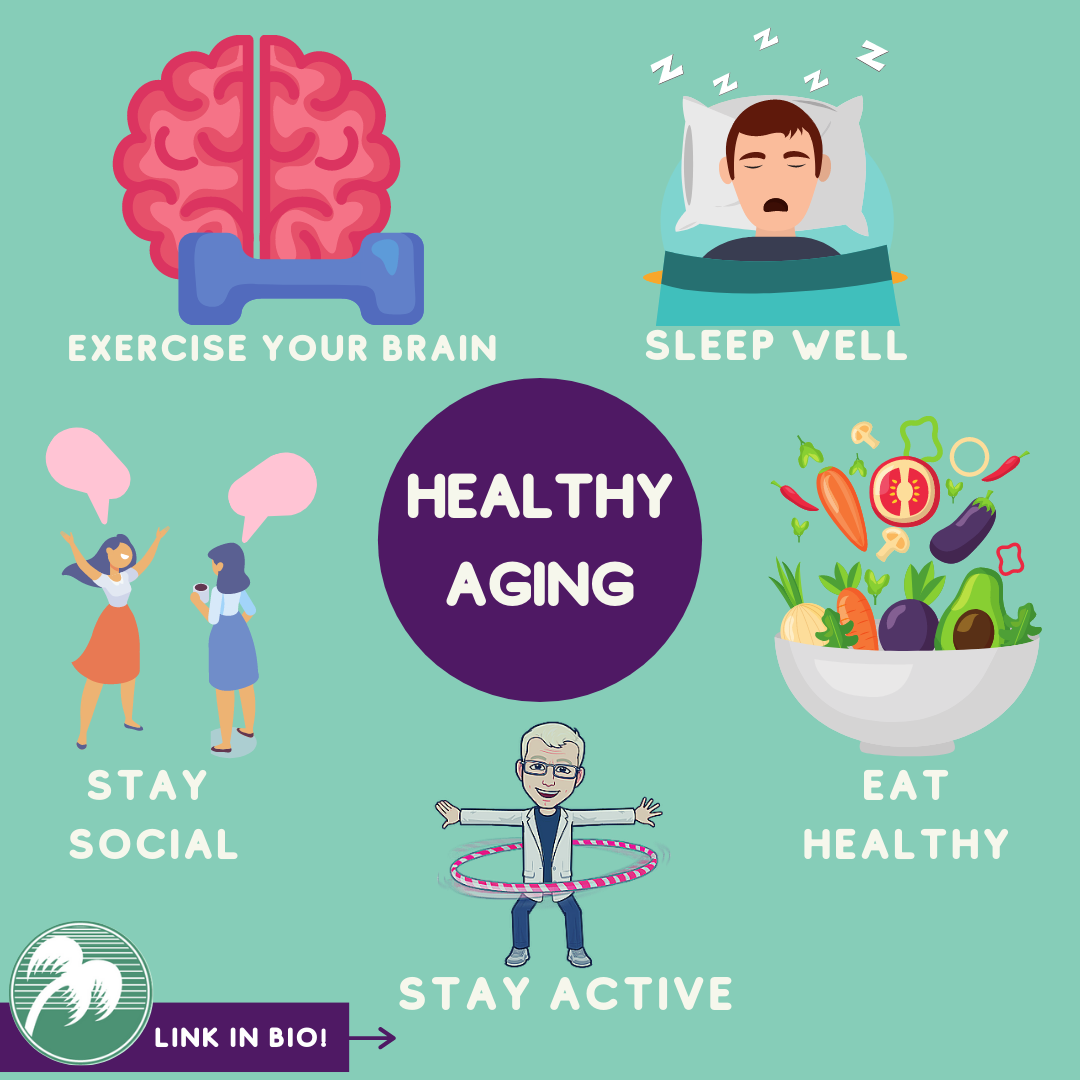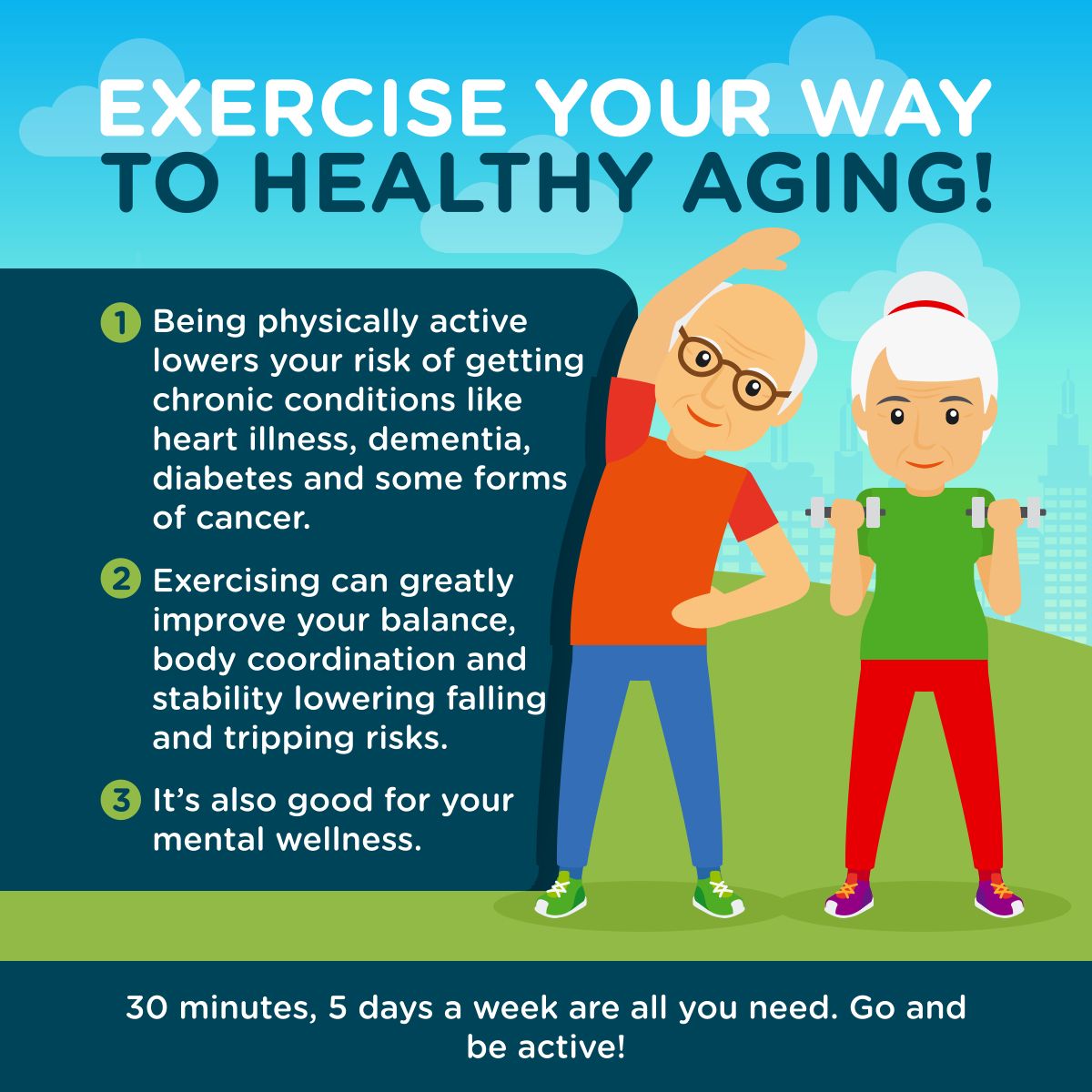Healthy Aging Tips Backed by Science: A Guide to Thriving in Your Golden Years

Embark on a journey towards healthy aging with scientifically-backed tips that can enhance your overall well-being and quality of life. From nutrition to physical activity, mental health, sleep, and more, this guide covers essential aspects to help you age gracefully and healthily.
Importance of Healthy Aging
Maintaining good health as we age is essential for overall well-being and quality of life. Healthy aging allows individuals to stay active, independent, and engaged in daily activities, contributing to a sense of fulfillment and happiness in later years.
Improved Quality of Life
Healthy aging can lead to a better quality of life by reducing the risk of chronic diseases, such as heart disease, diabetes, and certain types of cancer. By adopting healthy lifestyle habits, such as regular exercise, balanced nutrition, adequate sleep, and stress management, individuals can enhance their physical and mental well-being, ensuring a higher quality of life as they age.
Longevity
Studies have shown that healthy aging practices can contribute to increased longevity and a longer lifespan. By prioritizing preventive healthcare, regular medical check-ups, and disease management, individuals can reduce the risk of premature death and enjoy a longer, healthier life.
Embracing healthy aging habits early on can have a significant impact on extending one's lifespan and overall well-being.
Nutrition for Healthy Aging

Proper nutrition plays a crucial role in promoting healthy aging. A balanced diet filled with essential nutrients can help support overall health and well-being as we age.
Essential Nutrients for Healthy Aging
- Protein: Helps maintain muscle mass and strength, important for overall physical function.
- Omega-3 Fatty Acids: Support brain health and reduce inflammation, which can contribute to age-related diseases.
- Calcium and Vitamin D: Essential for bone health and reducing the risk of osteoporosis.
- Antioxidants (Vitamin C, Vitamin E, Selenium): Help protect cells from damage caused by free radicals and oxidative stress.
- Fiber: Supports digestive health and can help lower the risk of chronic diseases like heart disease and diabetes.
Influence of Dietary Patterns on Aging Outcomes
A diet rich in fruits, vegetables, whole grains, lean proteins, and healthy fats can have a positive impact on aging outcomes. It can help reduce the risk of age-related diseases, maintain cognitive function, improve energy levels, and support overall longevity.
On the other hand, a diet high in processed foods, sugar, unhealthy fats, and excessive calories can accelerate aging processes and increase the risk of chronic conditions.
Physical Activity and Exercise

Regular physical activity is crucial for healthy aging as it helps improve overall physical and mental well-being. Exercise has been shown to reduce the risk of chronic diseases, improve balance and coordination, boost mood, and enhance cognitive function in older adults.
Benefits of Physical Activity for Healthy Aging
- Improves cardiovascular health and reduces the risk of heart disease and stroke.
- Helps maintain muscle mass and strength, reducing the risk of falls and fractures.
- Enhances flexibility and joint mobility, promoting better range of motion.
- Boosts mood and mental health by reducing symptoms of anxiety and depression.
Types of Exercises for Older Adults
- Aerobic Exercises:Such as walking, swimming, or cycling, to improve cardiovascular health.
- Strength Training:Using resistance bands or light weights to maintain muscle mass and bone density.
- Flexibility Exercises:Including stretching and yoga to improve range of motion and prevent injury.
- Balance Exercises:Like tai chi or standing on one leg to reduce the risk of falls.
Tips to Incorporate Exercise into Daily Routines
- Schedule regular exercise sessions in your calendar to make them a priority.
- Start slowly and gradually increase intensity and duration to avoid injury.
- Find activities you enjoy to make exercise more enjoyable and sustainable.
- Include a variety of exercises to target different muscle groups and prevent boredom.
Mental Health and Cognitive Function

Maintaining good mental health and cognitive function is crucial for healthy aging. As we age, it's important to pay attention to our mental well-being to ensure a high quality of life in later years. Cognitive function, including memory, reasoning, and problem-solving skills, can decline with age, but there are strategies to help maintain and even improve these functions.
Importance of Mental Well-being
Good mental health is essential for overall well-being, especially as we age. It can help prevent cognitive decline, reduce the risk of developing mental health disorders such as depression and anxiety, and improve quality of life. Engaging in activities that stimulate the brain, such as puzzles, reading, and learning new skills, can help maintain cognitive function and mental well-being.
Strategies to Maintain Cognitive Function
- Stay physically active: Regular exercise has been shown to improve cognitive function and reduce the risk of cognitive decline.
- Follow a healthy diet: Eating a balanced diet rich in fruits, vegetables, whole grains, and healthy fats can support brain health.
- Stay socially connected: Maintaining strong social connections has been linked to better cognitive function and mental well-being. Engage in social activities, join clubs or groups, and stay in touch with friends and family.
- Challenge your brain: Keep your brain active by engaging in activities that require thinking, such as puzzles, crosswords, or learning a new skill.
Link Between Social Connections and Healthy Aging
Social connections play a significant role in healthy aging. Studies have shown that maintaining strong social ties can reduce the risk of cognitive decline, depression, and other mental health issues. Social interaction stimulates the brain, promotes emotional well-being, and provides a sense of belonging and purpose.
Building and nurturing relationships with others is key to healthy aging.
Sleep and Rest
Quality sleep is crucial for healthy aging as it plays a vital role in various bodily functions, including immune system regulation, cognitive function, and overall well-being. Lack of adequate sleep can lead to an increased risk of chronic conditions such as heart disease, diabetes, and cognitive decline.
Older adults, in particular, may face challenges with sleep due to changes in sleep patterns and other age-related factors.
Significance of Quality Sleep
Quality sleep is essential for healthy aging as it allows the body to repair and regenerate cells, consolidate memories, and regulate hormones. Adequate sleep can improve cognitive function, mood, and overall quality of life. Poor sleep quality or insufficient sleep can contribute to a variety of health issues, including increased inflammation, weakened immune function, and a higher risk of developing chronic diseases.
Tips for Improving Sleep Hygiene in Older Adults
- Establish a regular sleep schedule by going to bed and waking up at the same time every day.
- Create a relaxing bedtime routine to signal to your body that it's time to wind down, such as reading a book or taking a warm bath.
- Avoid stimulants like caffeine and nicotine close to bedtime.
- Ensure your sleep environment is conducive to rest, with a comfortable mattress, cool room temperature, and minimal noise or light.
- Avoid napping too long or too late in the day, as it can disrupt your nighttime sleep.
Impact of Rest and Relaxation on the Aging Body
Rest and relaxation are essential components of healthy aging as they allow the body to recover from daily stressors, reduce inflammation, and promote overall well-being. Engaging in activities that promote relaxation, such as meditation, deep breathing exercises, or gentle yoga, can help older adults manage stress, improve sleep quality, and enhance their overall health.
Conclusive Thoughts
In conclusion, prioritizing healthy aging through evidence-based tips can lead to a fulfilling and vibrant life as you grow older. By incorporating these practices into your daily routine, you can optimize your longevity and well-being for years to come.
FAQ
How important is healthy aging for overall well-being?
Healthy aging is crucial as it not only enhances physical health but also contributes to mental well-being, allowing individuals to maintain a high quality of life as they age.
What nutrients are essential for the aging process?
Key nutrients for healthy aging include antioxidants, Omega-3 fatty acids, Vitamin D, and calcium, which support various bodily functions and help combat age-related issues.
How can social connections impact healthy aging?
Social connections play a vital role in healthy aging by reducing feelings of isolation, boosting mental health, and providing emotional support, ultimately leading to a better overall well-being.




